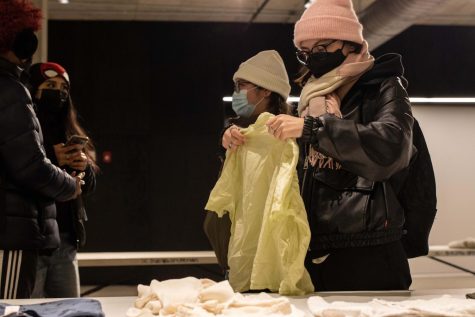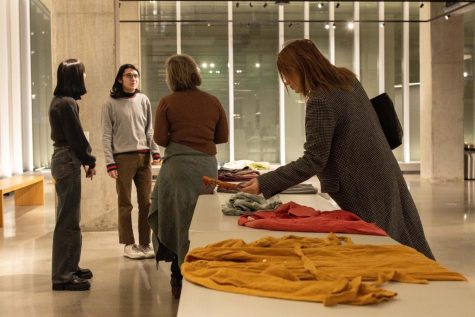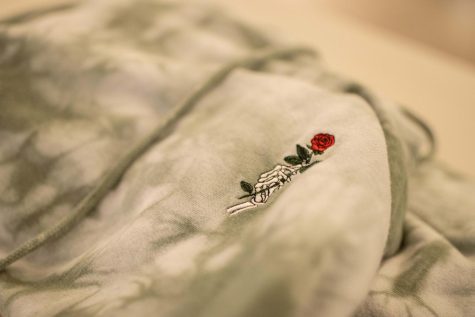Fashion Department continues its sustainability efforts with a second ‘Nothing New November’
December 1, 2022

Last year, Anna Stobaugh learned how to mend. During a workshop held by the Fashion Department, the senior fashion major fell in love with the craft.
“I did it once and [thought], ‘Wow, this is so fun,'” Stobaugh said. “Then every hole that has been in my clothes ever since, I’m like, ‘I know how to fix that.’ Once was all it took for me and [now] I love mending.”
When she was asked to lead a weekly mending workshop — Mend It Mondays — as part of the Fashion Department’s Nothing New November initiative, Stobaugh, a sustainable fashion minor, agreed.
Every Monday in November, Stobaugh taught interested students two mending techniques — darning and sashiko — in hopes that in the future, they will fix their old clothes, rather than purchase new clothes.

Nothing New November encourages consumers to not purchase new clothing or accessories during the month of November, said Colbey Reid, professor and chair of the Fashion Studies Department. The department put out a pledge participants could sign to promise to only purchase vintage or thrifted items during the month.
Reid encourages people to make their own parameters and make exceptions as they see fit. However, Reid said one challenge of the initiative was that it took place the same month as Black Friday, when many are starting to shop for the holiday season. Reid said this made November a meaningful time to “explore a new consumption practice.”
The Fashion Study Collection, which is an academic resource that holds thousands of vintage, designer and ethnic wear pieces, participated in Nothing New November with a benefit sale on Nov. 8. The sale consisted of vintage clothing and sewing patterns that had been removed from the archive and made available for sale with proceeds going toward supporting the collection. The Fashion Department also held a clothing swap event at the Student Center on Nov. 17.
Nothing New November began at Columbia last year as “a way for us to publicly declare our stance on making the fashion industry more sustainable,” Reid said. “And then also, of course, giving our students who are really passionate about that issue an opportunity to take action [and] invite other people to take action.”

According to a 2020 McKinsey & Company study, the fashion industry is responsible for about 4% of the world’s greenhouse gas emissions, but sustainable practices such as buying secondhand and repurposing old items can curb some of the impact.
Ija Wright, a junior marketing major, has been an avid thrifter since she was 9 years old, and leveraged her interest into her store and styling business, Authentic Closet. She stopped buying new clothes for two semesters straight last year, which she said helped her be grateful for what she already had. She has continued the practice this year, altering her wardrobe rather than buying new items.
“I will look at certain items in my closet like ‘Oh, I could turn this into something else,’ so maybe like a pair of jeans that I really don’t like the fit on anymore, I’ll turn into a skirt,” Wright said.
Wright said shopping more sustainably requires a change of mindset.
“Be more innovative with the way you look and how you want to walk through this life,” Wright said.







